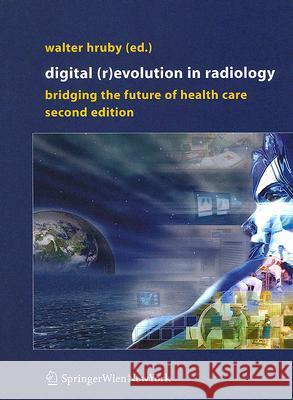Digital (R)Evolution in Radiology: Bridging the Future of Health Care » książka
Digital (R)Evolution in Radiology: Bridging the Future of Health Care
ISBN-13: 9783211208151 / Angielski / Twarda / 2005 / 383 str.
According to a statement of Gordon Moore, the founder of Intel Corporation, computer performance doubles every 18 months. So it is not surprising that the "half-time of modern computers is rapidly decreasing, meaning computer based radiology equipment ages very fast. Increasing demands of public health for radiology together with a never-ending rapid development of information technology and innovations result in a digital environment, where careful and thorough guidance is necessary. The book "Digital (R)evolution in Radiology (2001), edited by Walter Hruby, MD, is such a solid guidance for radiologists and other medical staff working in this field. As Jack I. Eisenman, MD, puts it in his review of this book, "The editor and the authors are authorities who have contributed to adapting, in a user-friendly manner, the digital (r)evolution to the needs of people who operate medical information systems (Radiology, April 2002). Almost three years after the first edition Walter Hruby presents the second edition. The book has not only been brought up-to-date, it also has been thoroughly revised and new aspects have been incorporated that focus on the synergy that results from the integration of digital systems used in radiology such as image fusion, "functional imaging, electronic patient records and health networks, medical chip cards etc. It is intended for radiologists and all other physicians, as well as technicians, scientists, IT-experts, health care providers and health maintenance organisations. The IT-market now has changed to such an extent, that the Integrated Health Care Enterprise becomes reality. So the second edition of "Digital (R)evolution in Radiology" - subtitled "Bridging the Future of Health Care - provides solid guidance for everyone working in this field. Special features o Planning a digital radiology department o Hard- and software components, including teleradiology o Functional aspects of monitor reporting o Virtual reality - 3 D o Practical digital radiography guide o Quality assurance o Synergy effects o Navigation o Economical outcome o Virtual patient"











